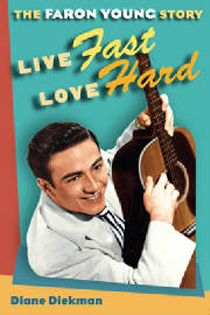A recent discussion about visual illusion and symbolism made me think, of course, about the writing equivalent. (Love this illusion -- face or hands?
After watching a video at Polywog Fiberart about what we see is not actually what is there, I began to believe that the Matrix might be based upon a true story. And that there is more to my senses than ummm meets the eye.
I take alot for granted in this world. Which makes me a very lazy writer. I should strive to understand the why and wherefore of everything! I look at a picture of a train track disappearing into the horizon and get a sense of depth. I see a painting of a craggy mountain pass and see dimensions. I see a landscape and feel certain that some images are closer than others. But I also know that all of these images are on a flat surface.
Isaac Newton with his prism showed that various colors bend at prescribed angles. He was able to bend the light into its various colors. And recently while surfing around, I found a website that declared: "Where distance angles focus nature to advance and recede visually, color angles make picture planes appear to advance and recede visually,... because, in the eye and brain, color angles mimic distance angles, and distance angles are three-dimensional!"
Color can produce depth and distance. We have been taught that some colors recede and others step forward. But I didn't fully grasp how useful this could be. 'Color' in a novel or in our writing can create illusions, too. Descriptions using words that convey more than the sky is up, the ground is down, can give a sense of emotion and depth to the scene. The 'stormy sky' the blood red sun, the shimmer on the horizon, the ozone in the air, all convey more than simple weather descriptions, they allude to something happening or expected to happen in the story. If it is spring -- then we can anticipate a new beginning. Winter and perhaps an end is in sight. A death. A suspension of life as in hibernation?
Introduced into the discussion was 'symbolism' that becomes cliched. A butterfly signifying new life perhaps or a ladybug representing latchkey kids? (Ladybug, ladybug fly away home, your house is on fire and your children, they will burn....) Or you watch the horror movie and the camera moves to the basement door and you want to stand up and yell, "Don't go down there!"
Tropes. Visual symbols that tell a whole story. They work well in writing. An example that Elizabeth Strout taught in a class I took with her back in Iowa involved a white kitchen stove. The character sees a stove and she flashes back to the kitchen of her childhood home where she watched her father press her mother's hand or cheek or some part of her anatomy to the red hot electric burner on the white kitchen stove. The author needs to introduce this relationship between symbol and story once, just once. And ever after whenever the white stove is introduced into the story, it represents domestic abuse. It is a form of shorthand. Very effective.
But when used, like the basement door, or the butterfly, it gets a bit cliched. So as with other cliches, it must be changed, stood on its ear. A trip down the basement stairs means freedom. It worked in the movie Patriot Games, based on a Tom Clancy novel. The characters waited in the dark of the basement to make their escape while the bad guys entered the upstairs and searched for them. But the understanding of basement and danger added an element of suspense to their sanctuary.
Or, in the case of the Harry Potter movie where the bluebird, representing spring and good things and hope and second chances, lands in the whomping willow. The willow draws a branch back like a baseball bat and smacks the bird out of the picture. Feathers fly as the bird splatters. There's a moment when you first see this that your brain has to reorganize its preconception. Utter silence in the theater and then laughter and cringing and us Bambi lovers are aghast even as we laugh. My brain did such a great job of reorganizing this visual clue that I wince whenever I see a bluebird or any bird land in a tree during a movie.
The right word in the right place takes on new meaning when you think about all that stands hidden in a word. When my mother (born in 1912) was a girl 'gay' meant happy and cheerful and fun to be around. 'Queer' meant different or in some instances a change in health. She was 'taken queer.' Now the word holds a whole segment of the population in its verbs and consonants.
Writing an entire scene in three words. "The white stove."
You see it don't you?

























No comments:
Post a Comment